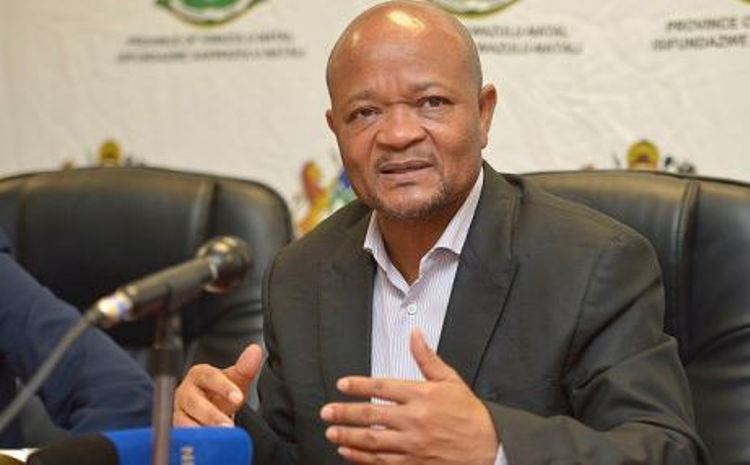Mchunu Unveils Q4 Crime Report: Progress Made, Challenges Remain
Presenting the quarterly crime report, Police Minister Senzo Mchunu highlighted substantial decreases in many major crime categories.

- Country:
- South Africa
South Africa’s latest crime statistics for the fourth quarter of the 2024/2025 financial year, covering the period from 1 January to 31 March 2025, present a complex picture of law enforcement progress and persistent challenges. While several major crime categories saw notable reductions, the worrying rise in sexual offences and commercial crimes has prompted renewed government focus and strategic intervention.
Positive Trends in Crime Reduction
Presenting the quarterly crime report, Police Minister Senzo Mchunu highlighted substantial decreases in many major crime categories. These improvements reflect the concerted efforts by the South African Police Service (SAPS), provincial and local authorities, and community-based initiatives aimed at enhancing public safety.
Significantly, 13 of the 30 police stations previously identified as murder hotspots registered declines in murder incidents. Two other stations reported stable figures, indicating a positive shift in some of the country’s most troubled areas. Additionally, an 8.9% decrease in stock-theft crime marked a victory for rural communities and the agricultural sector—a critical pillar of the South African economy.
The reduction in stock-theft is attributed to robust police operations and collaborative stakeholder engagements. In March, SAPS hosted a rural crime stakeholder meeting in the Free State, attended by representatives from KwaZulu-Natal, Limpopo, and the Eastern Cape. The discussions focused on strengthening police strategies and implementing additional measures to safeguard livestock. These efforts bore fruit, with the successful recovery of stolen animals in towns such as Qumbu, Matatiele, Maclear, and Tsolo. Recovered livestock included 231 cattle valued at R2.7 million, 81 sheep worth over R160,000, and 78 goats valued at over R150,000.
Challenges in Sexual and Commercial Crimes
Despite these achievements, the rise in sexual offences has raised serious concerns. The report recorded increases in rape and contact sexual offences, highlighting the urgency of addressing gender-based violence. Gauteng and KwaZulu-Natal emerged as the provinces contributing most significantly to rape statistics, accounting for 19.1% and 19.9% of the national total, respectively. Although five provinces—Eastern Cape, Gauteng, Limpopo, North West, and Western Cape—did register declines, the overall trajectory remains alarming.
In response, Minister Mchunu announced the launch of a 90-day Gender-Based Violence and Femicide (GBVF) blitz, which began on 1 May 2025. This initiative is spearheaded by the Justice, Crime Prevention and Security (JCPS) Cluster and is designed to reinvigorate government coordination, tackle systemic inefficiencies, and deliver tangible outcomes. A revitalized Inter-Ministerial Committee on GBVF is leading the effort, supported by the National Joint Operational and Intelligence Structure (Nat Joints), which oversees safety and protection on the front lines.
"While GBVF affects all genders, women remain disproportionately impacted by rape, assault with intent to cause grievous bodily harm (GBH), and murder," Mchunu emphasized, reinforcing the moral and social imperative to act decisively.
Commercial crime is another growing threat, with a 4.7% increase recorded during the fourth quarter. Gauteng and the Western Cape stood out with 12,074 and 7,244 reported cases respectively—by far the highest in the nation. Minister Mchunu praised the Directorate for Priority Crime Investigation (DPCI) for its diligence in prosecuting economic crimes, with 656 suspects brought before the courts. These included 364 related to serious organized crime, 220 to serious commercial crime, and 72 to serious corruption.
The Toll on Law Enforcement
The report also cast a somber spotlight on violence against police officers. A total of 22 officers lost their lives during the quarter, including six killed while on duty and 16 off duty. Gauteng alone accounted for 10 of these fatalities.
“This is not just a loss to the SAPS but to the entire nation. An attack on a police officer is an attack on the state, and those responsible will face the full might of the law,” Mchunu stated emphatically, calling for national solidarity in condemning violence against law enforcement.
Eradicating Illegal Firearms
Firearms remain the most commonly used weapons in murder cases, followed by knives. A total of 4,023 cases involving the illegal possession of firearms and ammunition were reported—a 2.7% increase compared to the same period last year. Minister Mchunu underscored the importance of Operation Shanela in seizing illegal arms and bolstering public safety. The operation recovered 128 illegal firearms and led to 82 arrests in a single week.
“One of our stated priorities is the eradication of illegal firearms and the tightening of control over legally owned firearms,” Mchunu noted, affirming the department’s commitment to long-term disarmament goals.
A Call for Community Involvement
While government-led initiatives are vital, Mchunu emphasized the critical role of communities in sustaining safety gains. He urged citizens to cooperate with law enforcement and report criminal activities, ensuring that interventions have lasting impact.
The mixed results of this quarter's crime statistics reflect a nation in transition—one that is making meaningful strides against long-standing security threats while also confronting new and evolving challenges. As government, law enforcement, and communities rally together, the coming months will be crucial in sustaining the momentum of progress and addressing the areas of concern with urgency and resolve.
Tags:










